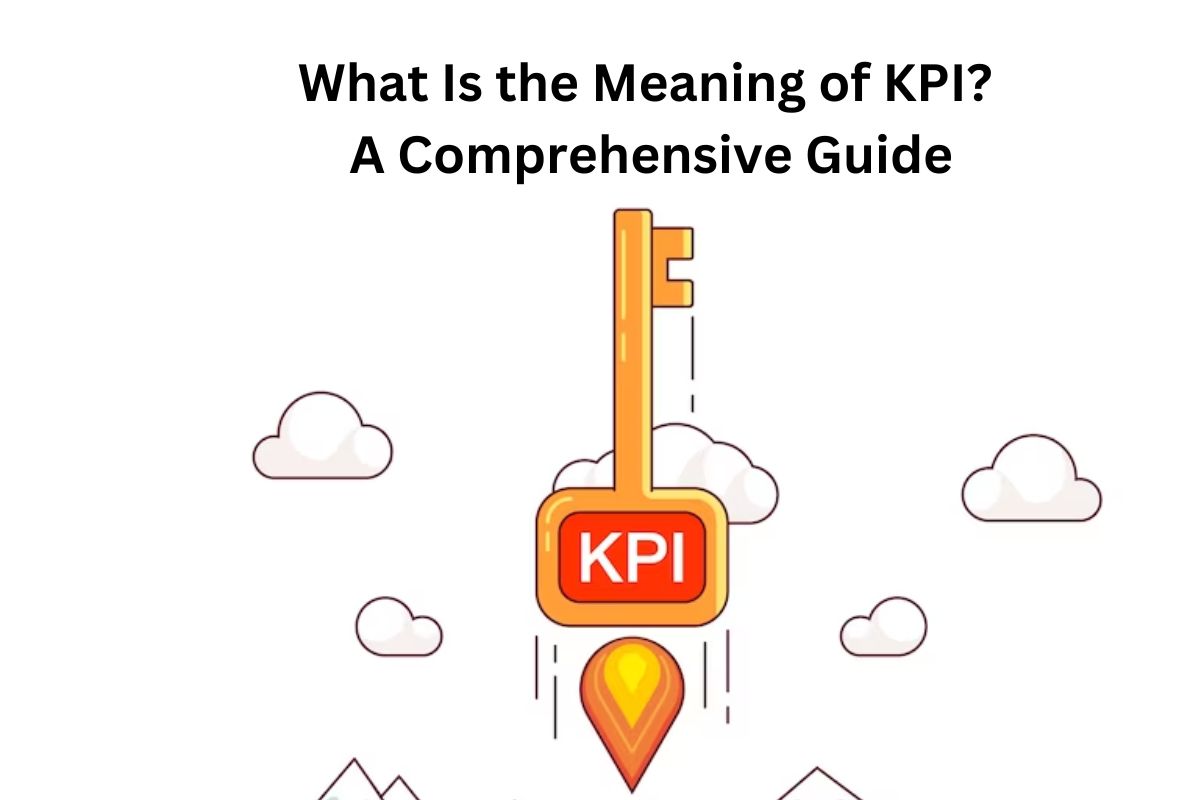In the dynamic world of business and management, the term “KPI” often takes center stage. Standing for Key Performance Indicators, KPIs are more than just buzzwords; they are the compass guiding organizations toward their goals, offering insights into performance and driving strategic decisions. In this blog, we’ll delve into the meaning of KPIs, their importance, types, and how to effectively use them to measure success.
Defining Key Performance Indicators (KPIs)
At its core, a Key Performance Indicator (KPI) is a quantifiable metric that evaluates the progress of an organization toward achieving its objectives. KPIs serve as benchmarks to gauge performance, measure success, and identify areas that need improvement. They can be applied to various aspects of a business, including financial performance, operational efficiency, customer satisfaction, employee productivity, and more.
Importance of KPIs
- Clarity of Objectives: KPIs provide clarity by defining what success looks like for an organization. They align everyone in the company towards common goals and objectives.
- Measurement of Progress: KPIs serve as a measurable way to track progress over time. This allows organizations to identify trends, deviations, and patterns in performance.
- Informed Decision-Making: KPIs offer valuable insights that drive strategic decisions. Organizations can identify strengths and weaknesses and allocate resources effectively.
- Accountability and Motivation: Clearly defined KPIs create a sense of accountability among employees and teams. They motivate individuals to contribute to the company’s success.
- Continuous Improvement: By monitoring KPIs, businesses can spot areas for improvement and implement changes to optimize processes and outcomes.
Types of KPIs
- Financial KPIs: These metrics assess the financial health of an organization. Examples include revenue growth rate, profit margin, return on investment (ROI), and cash flow.
- Operational KPIs: These KPIs focus on the efficiency of operations and processes. Examples include production cycle time, inventory turnover, and defect rate.
- Customer KPIs: These metrics measure customer satisfaction and loyalty. Examples include Net Promoter Score (NPS), customer retention rate, and customer acquisition cost.
- Employee KPIs: These KPIs evaluate workforce performance and engagement. Examples include employee turnover rate, productivity per employee, and training completion rate.
- Marketing KPIs: These metrics track the effectiveness of marketing efforts. Examples include website traffic, conversion rate, and cost per lead.
Creating Effective KPIs
Creating meaningful KPIs requires a thoughtful approach:
- Alignment with Objectives: KPIs should be directly linked to the organization’s goals and objectives. Each KPI should contribute to the overall mission.
- Specific and Measurable: KPIs should be specific and quantifiable. Ambiguous metrics make it difficult to assess performance accurately.
- Realistic and Attainable: KPIs should be achievable given the available resources and constraints. Unrealistic KPIs can lead to demotivation.
- Relevant and Timely: KPIs should be relevant to the area being measured and provide timely insights. They should reflect current market conditions and business realities.
- Actionable Insights: KPIs should provide insights that can drive action. If a KPI doesn’t inform decision-making, it might not be the right metric to focus on.
Also read more about scary stories to tell in the dark
Conclusion
Key Performance Indicators are the compass that guides organizations toward success. They help businesses stay focused on their goals, measure progress, and make informed decisions. By choosing the right KPIs and monitoring them effectively, organizations can optimize their processes, enhance customer satisfaction, drive financial growth, and create a culture of continuous improvement. Embracing the power of KPIs is a strategic step toward achieving excellence in today’s competitive business landscape.
FAQ on What Is the Meaning of KPI
Q1: What Is the Meaning of KPI? A Comprehensive Guide?
A1: Key Performance Indicators (KPIs) are quantifiable metrics used to measure the performance of an organization, team, or individual in achieving specific objectives. They provide a clear and measurable way to track progress toward goals and make informed decisions.
Q2: Why are KPIs important for businesses?
A2: KPIs are crucial because they help organizations define and measure success. They provide insights into various aspects of performance, guide decision-making, encourage accountability, and drive continuous improvement.
Q3: What are some examples of KPIs in different business areas?
A3: Here are a few examples:
- Financial KPI: Profit margin
- Operational KPI: Production cycle time
- Customer KPI: Customer satisfaction score (CSAT)
- Employee KPI: Employee turnover rate
- Marketing KPI: Conversion rate
Q4: How do I choose the right KPIs for my business?
A4: Select KPIs that are aligned with your business goals and objectives. Ensure they are specific, measurable, realistic, and relevant to the area you’re measuring. Avoid choosing too many KPIs; focus on the most critical ones that provide actionable insights.
Q5: Can KPIs be applied to non-profit organizations or other sectors outside of business?
A5: Absolutely. While KPIs are commonly associated with business, they can be applied to non-profits, government agencies, healthcare, education, and more. The key is to identify metrics that align with the organization’s goals and mission.
Q6: How often should KPIs be reviewed?
A6: The frequency of KPI reviews depends on the nature of the metric and the goals it’s measuring. Some KPIs might need daily or weekly monitoring, while others can be reviewed monthly or quarterly. It’s essential to strike a balance between providing timely insights and allowing enough time to observe meaningful trends.















Pingback: Top 10 Travel Insurance Companies With Cost & Benefits In 2023